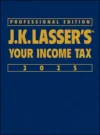Whistleblower Payments
The IRS has a program to reward individuals who provide information that enables the IRS to collect more revenue. Specifically, the IRS Whistleblower Office pays a reward if you bring “specific and credible evidence” that results in the collection of taxes, penalties, interest, or other amounts from a noncompliant taxpayer.
Rewards
The Tax Relief and Health Care Act of 2006 made fundamental changes in the IRS whistleblower program. It added a new section to the Internal Revenue Code providing for a mandatory reward in certain situations.
If the taxes, penalties, interest, and other amounts in dispute are more than $2 million, and a few other qualifications are met, the IRS must pay at least 15% but no more than 30% of the amount it collects. The percentage is based on the value of the information furnished.
For cases involving no more than $2 million, an award of up to 15% is possible. A reward in this situation continues to be discretionary.
Procedures
If you believe you have the right type of information to enable the IRS to collect unpaid taxes, you must file Form 211, Application for Award for Original Information. Include on the form the name of the taxpayer who committed the violation, along with his or her taxpayer identification number, address, and date of birth or approximate age. Also state in detail the facts of the alleged violation and why you believe it is a violation of the tax laws. Describe how you learned about the information and your relationship to this taxpayer. Also describe the amount owed by the taxpayer and the information you have that supports this amount owed. Then you sign the form under penalty of perjury and mail it to the address on the form.
It can take the IRS years to investigate your information and reach a final decision about paying an award. Stephen Whitlock, director of the IRS Whistleblower Office, says it receives about 40 claims every month.
If a whistleblower disagrees with the outcome of the claim, he or she can appeal to the Tax Court within 30 days of receiving a determination from the IRS about the whistleblower claim.
Tax on Payments to Whistleblowers
Unfortunately for whistleblowers, the Tax Court says that the payments are fully includible in gross income. In one recent case involving a whistleblower payment that was not part of the IRS whistleblower program, a taxpayer received an $8.75 million settlement against a government contractor under the False Claims Act. Of this amount, he owed $3.5 million to his attorneys as their fees. For tax purposes, he netted the fees from the total award and reported only $5.25 million in income. The court required him to include the full amount in gross income. The award was payment for exposing a government contractor.
He was, however, allowed a miscellaneous itemized deduction for the $3.5 million of the award that he had to pay his attorneys. Unfortunately, however, such deduction is not allowable for purposes of the alternative minimum tax (AMT) and may not produce any true tax savings after factoring the AMT cost.
Tenants in common
Two or more persons who have undivided ownership rights in property. Upon death of a tenant, his or her share passes to his or her estate, rather than to the surviving tenants.



